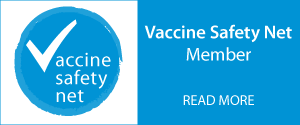Korean translations of the BC case definition publications have now been developed by the COVID-19 Vaccine Safety Research Center (Director: Prof. Dr. Byung-Joo Park). The center was established in September 2022 by the COVID-19 Vaccine Safety Research Committee (CoVaSC), founded and operated by the National Academy of Medicine of Korea as commissioned by the Korea Disease Control and Prevention Agency (KCDA) in November 2021.
The center monitors domestic and international research results and analyzes vaccination data and adverse events, to assess the causality of adverse events reported after COVID-19 vaccination based on objective and scientific evidence. The center also works closely with international experts, with the key aim of promoting more comprehensive causal evaluation standards and establishing a joint research system with international institutions.
To further strengthen assessment of COVID-19 vaccine safety, the center’s Department of International Collaboration and Policy Research (Head of Department: Prof. Dr. Jong-Koo Lee) has initiated the translation of ten BC case definition publications and plans to complete by the end of June 2023.
With this release, Korean medical professionals and stakeholders are encouraged to read relevant BC case definitions to achieve a comprehensive understanding in the COVID-19 vaccine safety.
Background information: The National Academy of Medicine of Korea has promoted effective and accurate scientific knowledge sharing by holding multistakeholder forums with the Korean Federation of Science and Technology Societies and the Korean Academy of Science and Technology and organizing a COVID-19 Special Committee since the beginning of the pandemic in early 2020. In recognition of its efforts, the Korea Disease Control and Prevention Agency (KDCA) commissioned the National Academy of Medicine of Korea to establish CoVaSC in November 2021. The main objectives of CoVaSC are to facilitate independent assessment of post-vaccination adverse events, perform safety studies, and support evidence-informed policy making.



